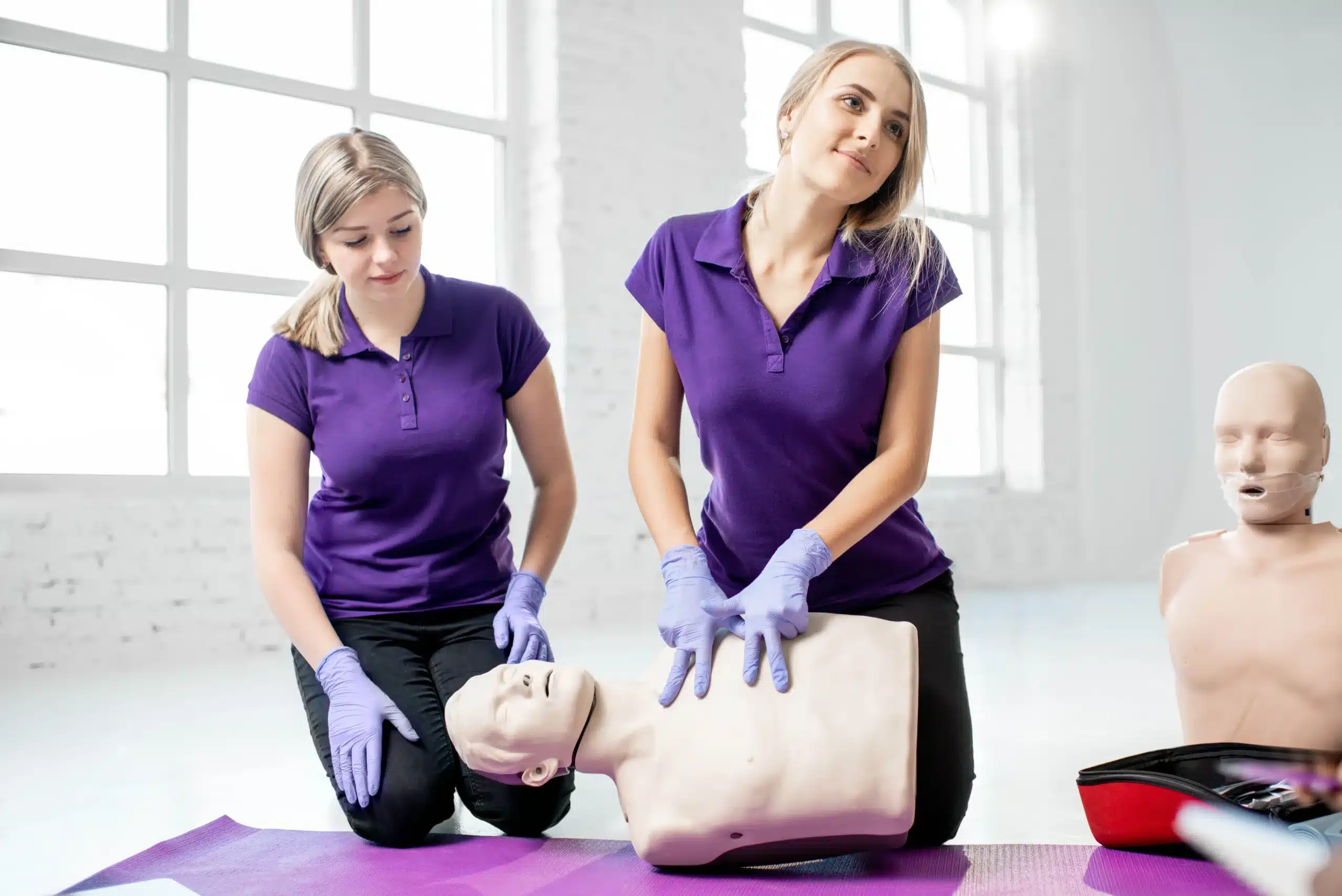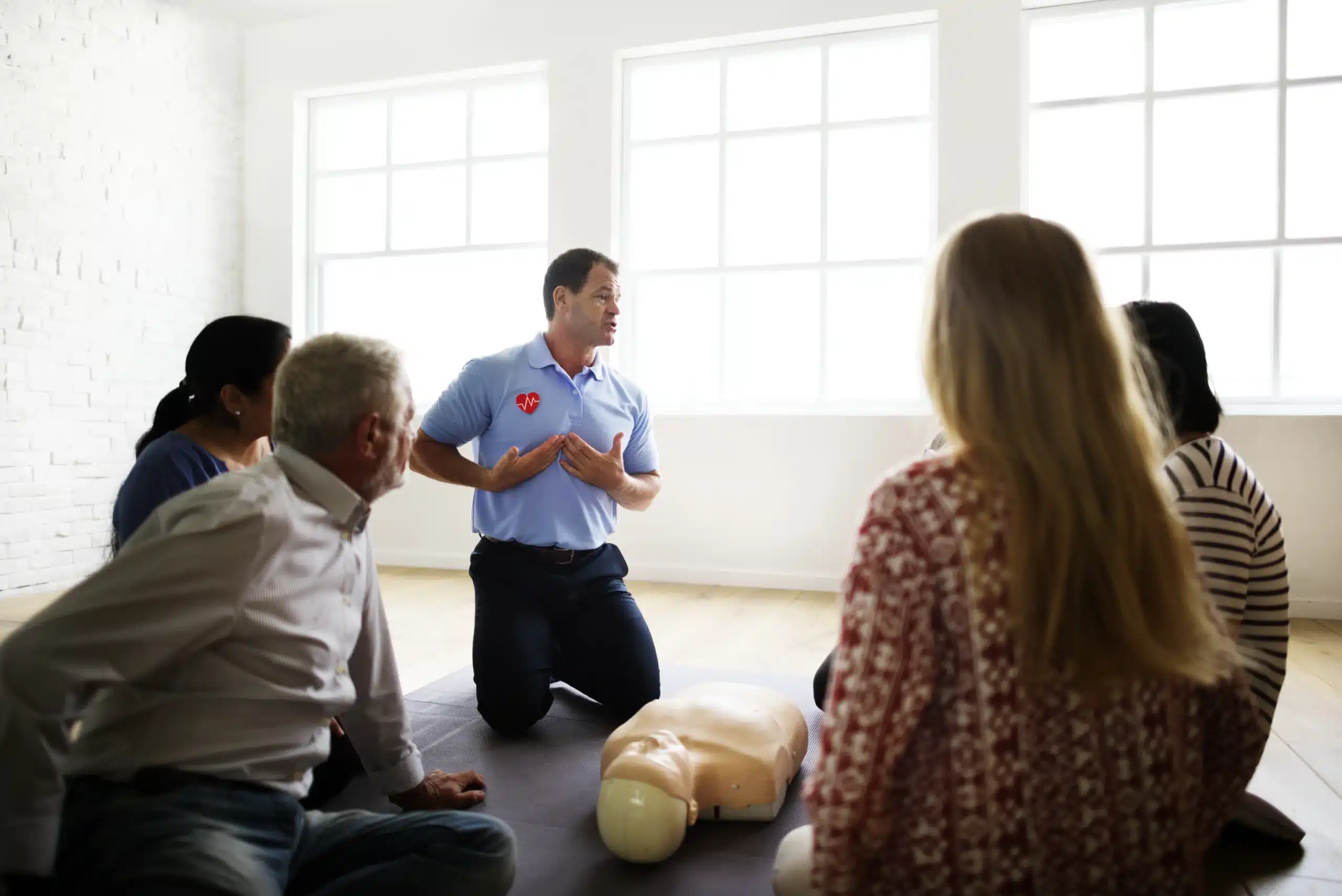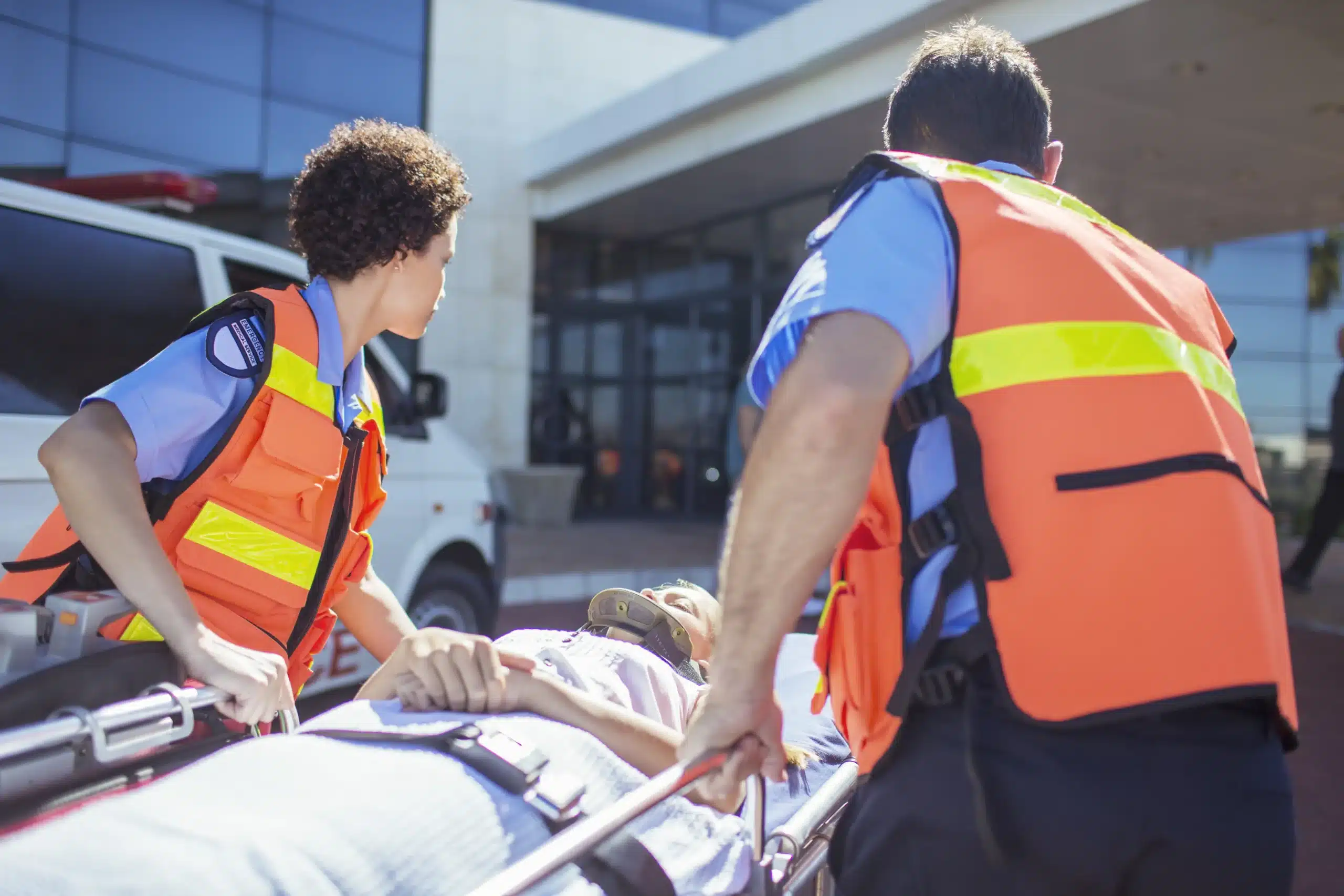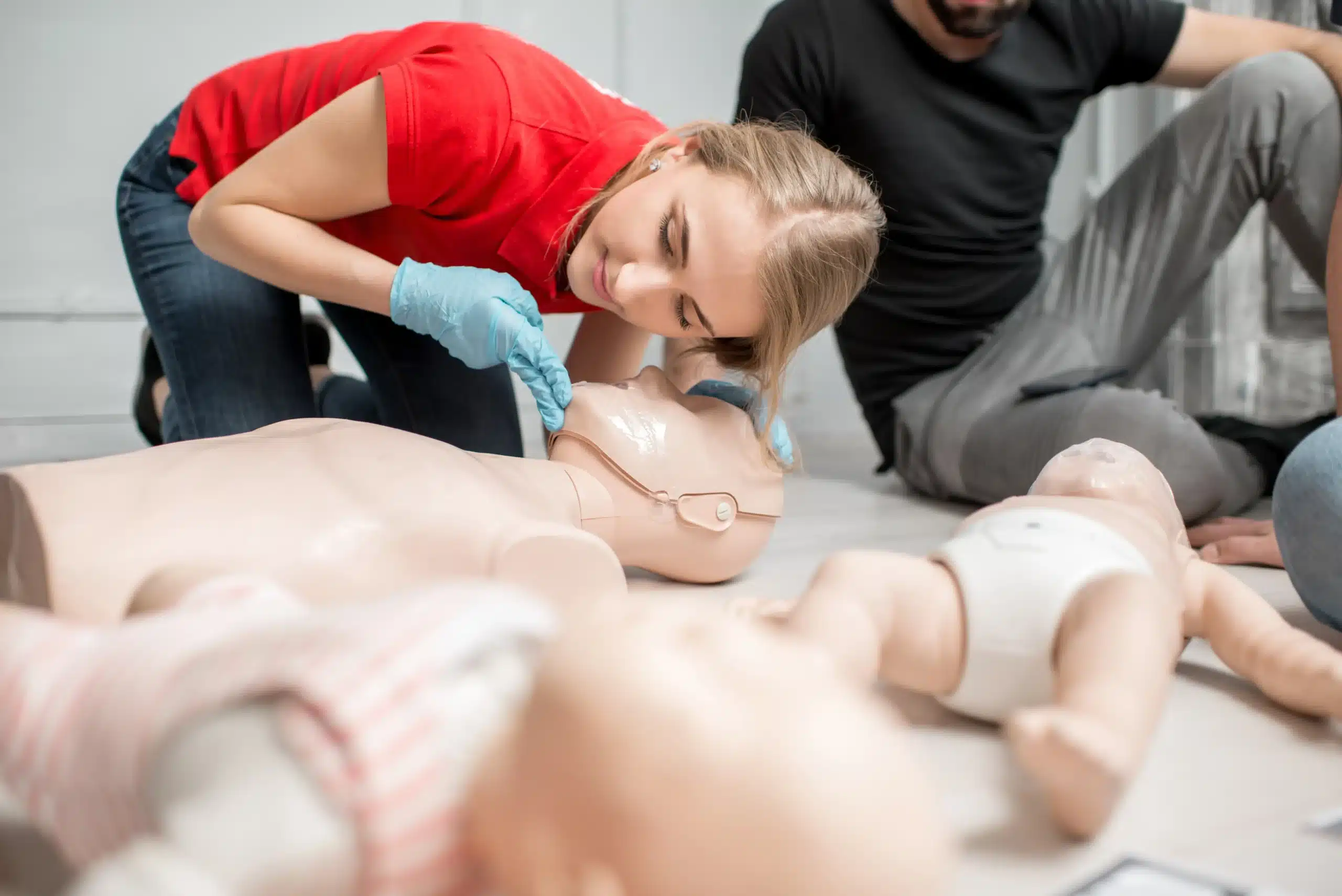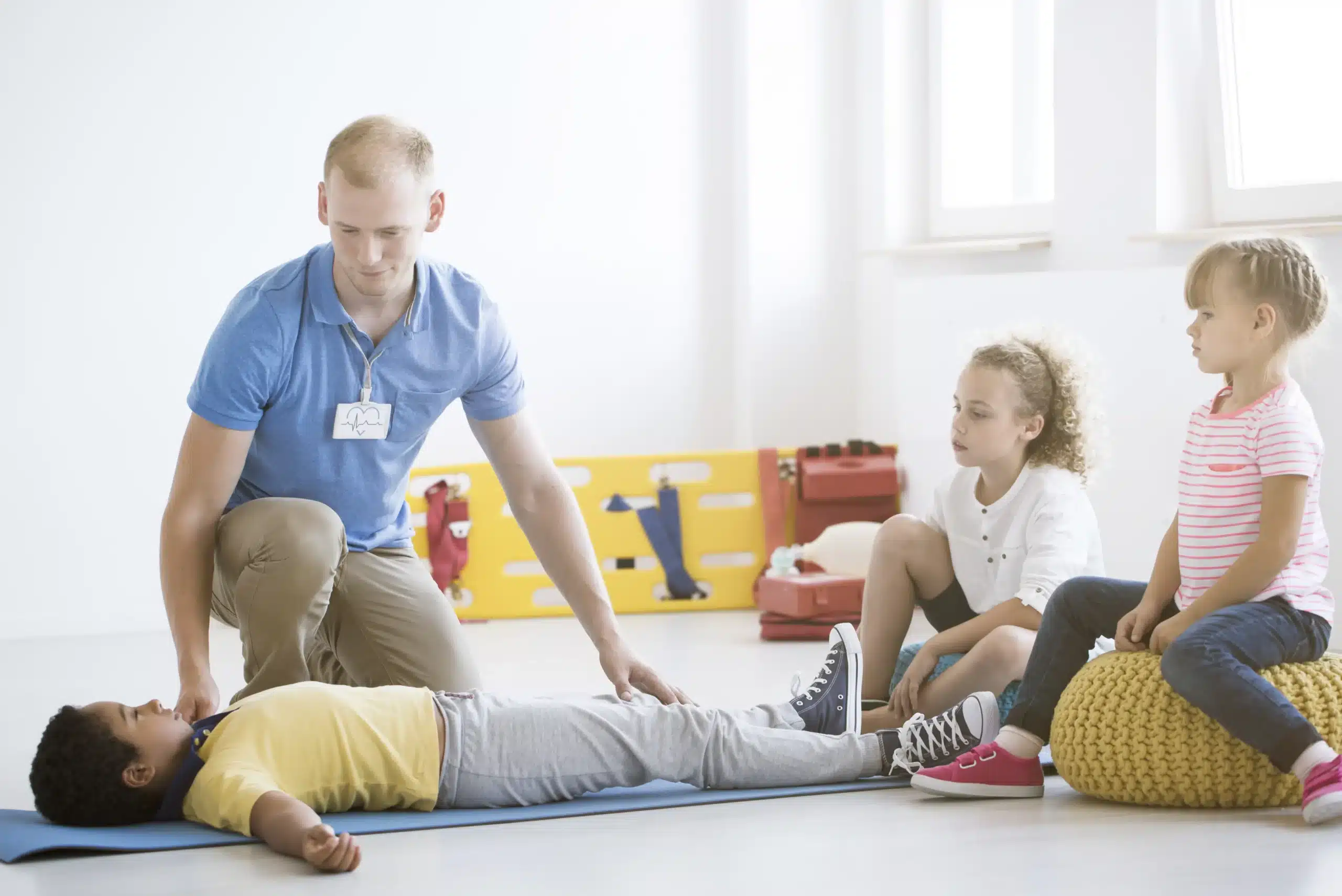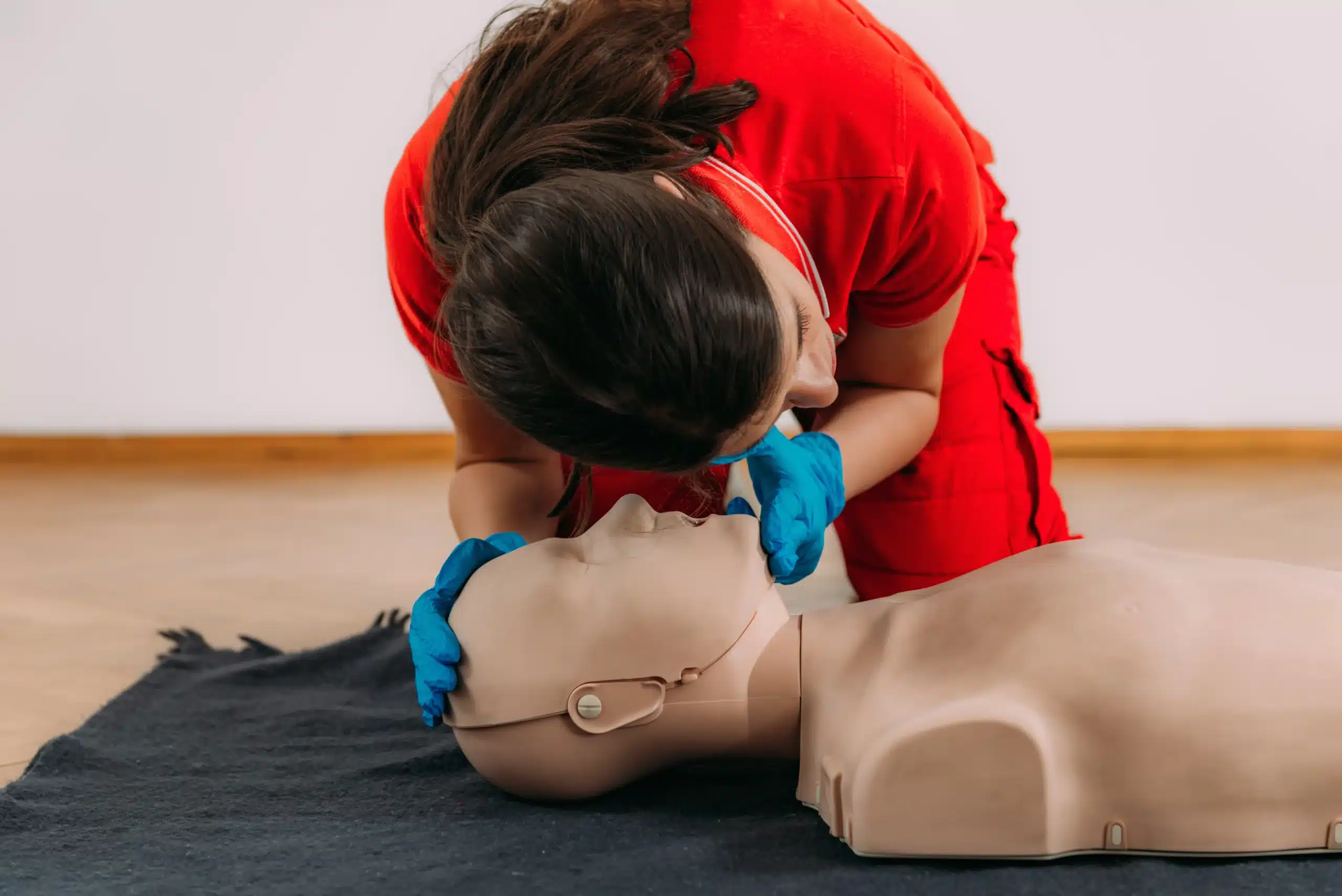As a childcare provider, you’re entrusted with the well-being of children, and that means being prepared for any medical emergency. EMSA courses in Stockton equip you with the life-saving skills you need to respond confidently and effectively. This comprehensive guide covers everything from the basics of pediatric CPR and first aid to more specialized training in preventing nutrition issues and lead poisoning. Whether you’re just starting your childcare career or need to renew your certification, we’ll help you find the right EMSA course in Stockton, understand the costs, and navigate the registration process.
Key Takeaways
- EMSA certification is mandatory for California childcare providers: These courses provide crucial skills in pediatric CPR, first aid, and identifying common childhood illnesses and injuries. Maintaining your certification not only safeguards the children under your care but also ensures you meet state licensing requirements.
- Stockton offers various EMSA training options: With in-person, online, and blended learning formats available, you can find a course that suits your schedule and learning preferences. Consider course content, the provider’s reputation, and location when selecting a program.
- Proper preparation ensures a smooth EMSA training experience: Understand the course expectations, confirm instructor qualifications, and arrive ready to engage actively. Remember to recertify every two years to keep your skills sharp and maintain compliance with California regulations.
What are EMSA Courses and Why Do They Matter?
If you’re a childcare provider in California, you’ve likely heard of EMSA courses. But what are they, exactly, and why are they so important? This section breaks down everything you need to know.
What EMSA Courses Are
EMSA stands for Emergency Medical Services Authority. These courses are designed specifically for childcare providers in California, equipping them with the skills to handle medical emergencies and ensure the safety of the children in their care. EMSA certification covers a wide range of topics, including pediatric CPR, first aid, and recognizing and responding to common childhood illnesses and injuries. It’s crucial for maintaining a safe and healthy environment for kids. After completing an approved course, you’ll receive an official EMSA certification card, valid for two years.
California Childcare Provider Requirements
In California, specific training is required for licensed childcare providers. This isn’t just a recommendation—it’s mandated by state law. This means you must complete EMSA-approved pediatric CPR and first aid training to comply with licensing requirements. These certifications need to be renewed every two years through a four-hour refresher course in both pediatric first aid and CPR, ensuring your skills are up-to-date and you’re prepared to handle any emergency. This commitment to ongoing training reflects the importance of having qualified and prepared individuals caring for young children. While meeting these requirements is essential for your job, remember that these skills are ultimately about protecting the children you care for. You can find more information about these requirements on the EMSA website.
EMSA Courses in Stockton
If you’re a childcare provider in California, staying up-to-date on the latest health and safety practices is critical. Luckily, there are plenty of convenient options for EMSA-approved courses right here in Stockton. This section breaks down the various courses available, covering everything from pediatric CPR and first aid to important topics like nutrition and lead poisoning prevention.
Pediatric CPR and First Aid
Caring for kids means being prepared for anything. High-quality Pediatric CPR and First Aid training gives you the confidence to handle emergencies involving infants and children. Several organizations in Stockton offer these essential courses. The San Joaquin Safety Council, for example, offers a combined Infant/Child/Adult CPR, AED, and Pediatric First Aid course. This comprehensive approach is especially helpful for those working with children up to 8 years old. Another option is MABPRO, which provides a blended learning EMSA Pediatric CPR/AED & First Aid course covering essential life-saving techniques for all ages.
Health & Safety Training
California requires specific health and safety training for childcare providers, and Stockton has you covered. The Cherry Tree Group offers an 8-hour EMSA-approved California Preventive Health & Safety Practices & Nutrition training. This course dives into crucial subjects like immunizations and preparing for emergencies. The San Joaquin Safety Council also offers convenient EMSA Childcare Health & Safety classes, often held via Zoom, making it easier to fit into your busy schedule. These courses ensure you’re equipped to create and maintain a safe, healthy environment for the children in your care.
Preventing Nutrition Issues and Lead Poisoning
Beyond the basics of CPR and first aid, understanding how to prevent nutrition issues and lead poisoning is vital for childcare providers. The 8-hour training offered by the Cherry Tree Group includes a focus on these critical health concerns. For more information on how these topics are addressed in EMSA training, check out this helpful resource. By taking these courses, you’re not only fulfilling requirements but also gaining valuable knowledge that can make a real difference in the lives of the children you look after.
Where to Find EMSA Courses in Stockton
Finding the right EMSA-certified course can feel overwhelming, but several excellent providers serve the Stockton area. Here’s a rundown of some popular options to explore:
Safety Training Seminars
Safety Training Seminars offers a range of EMSA-approved courses, including CPR, first aid, and other specialized certifications. They focus on clear communication and a straightforward registration process.
Cherry Tree Group
The Cherry Tree Group provides comprehensive training, including an 8-hour EMSA-approved California Preventive Health & Safety Practices & Nutrition course and an 8-hour EMSA-approved California Child Care Pediatric First Aid CPR AED training. They hold licenses from both the American Health & Safety Institute and Medic First Aid.
San Joaquin Safety Council
The San Joaquin Safety Council offers a combined Infant/Child/Adult CPR, AED, and Pediatric First Aid course. This comprehensive course can fulfill part of the 16-hour licensing requirement for some professionals.
MABPRO
MABPRO has a blended learning EMSA Pediatric CPR/AED & First Aid course. This flexible format combines online learning with in-person skills sessions, making it a convenient option for busy caregivers.
Stockton CPR Certification
Stockton CPR Certification focuses on providing affordable EMSA Childcare Health & Safety training. They offer convenient online courses via Zoom, making it easier to fit the training into your busy schedule.
EMSA Course Costs and Value
Understanding the costs associated with EMSA (Emergency Medical Services Authority) training is a practical first step. While the value of these life-saving skills is immeasurable, budgeting for the right course is important. Let’s break down the typical expenses for EMSA courses in Stockton.
Typical Prices
EMSA course pricing varies depending on the provider and the specific combination of certifications included. For example, the San Joaquin Safety Council offers a combined Infant/Child/Adult CPR, AED, and Pediatric First Aid course for $90 per person. This comprehensive package covers a wide range of essential skills. Alternatively, MABPRO offers a blended learning course for EMSA Pediatric CPR/AED and First Aid for $65, a great option if you prefer a more flexible learning approach. Our own EMSA Childcare Health & Safety classes here at Stockton CPR Certification are priced at $100 and are conveniently offered via Zoom approximately six times a month. You can find more details on our EMSA Child Care Health & Safety page.
Extra Fees and Materials
Keep in mind that some courses may have additional fees. For instance, if you’re a licensed childcare provider or require an EMSA sticker, there’s often an extra $10 fee. It’s always a good idea to double-check with the provider about any extra costs upfront. Also, most training centers require you to bring your own materials. This typically includes a blue or black pen, a valid photo ID, and a face mask. These small details can make a big difference in your overall experience.
Comparing Provider Costs
When comparing costs, remember to consider the value you’re receiving. While some providers may offer lower prices, it’s crucial to ensure the course meets all your requirements and provides high-quality instruction. For example, the Cherry Tree Group offers an eight-hour EMSA-approved California Preventive Health & Safety Practices and Nutrition training, a more extensive option. Another provider to consider is the Emergency Medical Sciences Training Institute (EMSTI). Take the time to research different providers, compare their offerings, and choose the course that best fits your needs and budget.
EMSA Course Formats and Schedules
Finding the right EMSA course often comes down to format and schedule. Luckily, there are several options available, so you can choose what works best for your learning style and busy life.
In-Person Classes
Traditional in-person classes offer a hands-on learning experience. Providers like Cherry Tree Group in Stockton offer on-site training, bringing the instruction directly to you. This format allows for real-time feedback from instructors and face-to-face interaction with other students. In-person training can be a great option for those who thrive in a structured classroom setting. If you prefer a more traditional learning environment, in-person classes provide focused interaction and immediate feedback.
Online Learning
If your schedule is packed, online learning might be the perfect fit. Many providers, including those offering EMSA courses for childcare providers, have embraced virtual classrooms. These courses, often using platforms like Zoom, allow you to learn from anywhere with an internet connection. This flexibility makes it easier to fit the training into your busy schedule, especially if commuting or fixed class times are a challenge.
Blended Learning
For those who appreciate both online convenience and in-person interaction, blended learning offers a happy medium. Providers like MABPRO offer courses that combine online modules with in-person skills sessions. This approach lets you learn the material at your own pace online and then practice your skills in a real-world setting with expert guidance. Blended learning is an excellent choice for those who want flexibility with the added benefit of hands-on training.
Options for Busy Schedules
Juggling work, family, and other commitments can make finding time for training tough. But with options like the convenient EMSA Childcare Health & Safety classes in Stockton, which are frequently offered online, you can find a schedule that works for you. Many providers offer evening and weekend classes, both online and in-person, to accommodate busy schedules. Look for providers who offer a variety of class times to find the best fit for your availability.
EMSA Certification: Details and Validity
Once you’ve completed your EMSA-approved course, you’ll receive a certification card. Let’s break down the details of this certification, including how long it’s valid and what you need to do to renew it.
How Long Certification Lasts
Your EMSA-approved certification card is valid for two years after you complete the CPR & First Aid or the 8-hour Health and Safety course. Keep this timeframe in mind so you know when it’s time to recertify. This two-year validity is standard for many childcare providers in California.
Skills You’ll Learn
These courses cover way more than just basic first aid and CPR. The 8-hour Health and Safety training dives into essential topics like childhood immunizations, preventive health practices, recognizing and preventing nutrition issues, understanding the dangers of lead poisoning, and preparing for emergencies. These skills equip you to handle a wide range of situations and create a safer environment for the children in your care.
Renewing Your Certification
California requires childcare providers to renew their EMSA training every two years. This involves completing a 4-hour pediatric First Aid course and a separate 4-hour pediatric CPR course. Staying up-to-date with your certification ensures you’re always prepared to provide the best possible care. You can find renewal courses through various providers, including Safety Training Seminars in Stockton.
Enrolling in an EMSA Course: Prerequisites and Registration
Age Limits and Prior Knowledge
There aren’t any specific age limits for taking an EMSA-approved course. However, California requires childcare providers to renew their pediatric First Aid and CPR training every two years, with four hours dedicated to each. This ensures providers have the most current knowledge and skills. For more details, visit the EMSA website.
What You’ll Need
Before committing to a training course, verify the program’s and instructor’s credentials. Ask to see their certification or other authorizing documents. This simple step protects you and ensures you receive training from a qualified professional. The EMSA website offers resources to help you verify instructor credentials.
How to Enroll and Pay
Enrolling in an EMSA course through Safety Training Seminars is straightforward. Visit our Classes page and follow the registration steps. We offer various payment options. Pay securely online during registration, or mail a check or money order to our Stockton office. We also accept cash (exact change only) during regular business hours. Contact us for our mailing address and office hours.
Choosing the Right EMSA Course
Finding the right EMSA course means considering a few things to make sure it fits your needs and learning style. Let’s break down the key points to help you make a smart choice.
Your Schedule and Learning Style
First, consider your availability and how you learn best. Are you a busy parent who needs a weekend course or an online option that offers flexibility? Do you prefer hands-on, in-person training, or are online modules more convenient? Some providers, like the San Joaquin Safety Council, offer blended learning, combining online coursework with in-person skills sessions. This works well for different learning styles and schedules, letting you complete some of the training at your own pace while still getting hands-on practice. Think about whether a shorter, more intensive course or one spread over several weeks is a better fit for you.
Course Content and Provider Reputation
Next, look closely at the course content. Make sure it aligns with California’s EMSA requirements for childcare providers. Check if it includes CPR, AED training, first aid for infants, children, and adults, and other important topics like common childhood illnesses. A reputable provider like MABPRO offers a comprehensive EMSA Pediatric CPR/AED & First Aid blended learning course covering all these essentials. It’s also a good idea to check the provider’s reputation. Look for established organizations known for quality training and certification.
Location and Accessibility
Finally, think about location and accessibility. Is the training center easy to get to, or would an online option be better? Stockton CPR Certification offers convenient EMSA Childcare Health & Safety classes via Zoom, making them accessible for those with busy schedules or transportation challenges. If you prefer in-person learning, check if the facility is accessible and can accommodate any special needs. An easy-to-reach location can make a big difference in your overall learning experience.
Getting Ready for Your EMSA Course
So, you’ve decided to take an EMSA-approved course—fantastic! Whether you’re meeting licensing requirements for childcare or simply want to be prepared for emergencies, here’s what you should know before your first class.
What to Expect During Training
EMSA courses blend classroom learning with hands-on practice. Expect demonstrations, interactive discussions, and real-life scenarios. Providers like Cherry Tree Group offer training licensed by organizations like the American Health & Safety Institute and Medic First Aid. You’ll learn essential skills for responding to various emergencies, from treating minor injuries to performing CPR. For example, the San Joaquin Safety Council offers a combined Infant/Child/Adult CPR, AED, and Pediatric First Aid course—a great option for anyone working with young children. If you’re looking for a blended learning experience, providers like MABPRO offer online components coupled with in-person skills sessions.
Tips for Success
Before signing up, do a little research. The EMSA website recommends verifying your instructor’s qualifications. Ask to see their certification card or training program details. This ensures you’re learning from a qualified professional. Once you’ve chosen a course, handle payment promptly. Some providers, like the San Joaquin Safety Council, require payment in advance. Finally, come prepared to participate actively. The more engaged you are, the more you’ll absorb.
Common Challenges and Solutions
One common misconception is that EMS professionals only handle medical emergencies. In reality, EMS involves a much broader scope of services, as this article on common EMS misconceptions explains. Another challenge is keeping your certification current. Remember, California childcare providers must renew their training every two years, including four hours each of pediatric First Aid and pediatric CPR. Plan and schedule your renewal course ahead of time to avoid lapses in your certification. This ensures you’re always prepared and compliant, as highlighted by Bay Area CPR.
Related Articles
- EMSA Child Care Health & Safety – Stockton CPR Classes
- Pediatric CPR & First Aid Training in Stockton – Stockton CPR Classes
- Pediatric CPR & First Aid Training in Lodi – Stockton CPR Classes
- Pediatric CPR & First-Aid Classes in Tracy – Stockton CPR Classes
- CPR Classes in Stockton: Which Course Is Good for You?
Frequently Asked Questions
What exactly does EMSA certification cover?
EMSA certification provides training in pediatric CPR, first aid, and recognizing and responding to common childhood illnesses and injuries. It equips childcare providers with the skills to handle medical emergencies and maintain a safe environment for children. The curriculum includes preventive health practices, recognizing and preventing nutrition issues, understanding lead poisoning dangers, and emergency preparedness.
How do I find an EMSA-approved course near me?
Several organizations offer EMSA-approved courses in Stockton. Check with local training centers like Safety Training Seminars, the Cherry Tree Group, the San Joaquin Safety Council, and MABPRO. Online directories and the EMSA website can also help you locate certified providers in your area. Consider factors like course content, schedule, format (in-person, online, or blended), and cost when making your decision.
If I’m already certified in general first aid and CPR, do I still need an EMSA certification for childcare in California?
Yes, even with existing first aid and CPR certifications, you’ll need an EMSA-approved pediatric CPR and first aid certification to meet California’s requirements for childcare providers. EMSA training focuses specifically on the needs of infants and children, ensuring you have the specialized skills to care for them.
How much do EMSA courses typically cost, and what additional expenses should I be aware of?
EMSA course costs vary depending on the provider and what’s included. Expect to pay somewhere between $65 and $100 for a combined pediatric CPR and first aid course. There might be extra fees for things like EMSA stickers or provider licenses. Also, factor in the cost of materials like pens, a photo ID, and a face mask, which are usually required.
How do I renew my EMSA certification once it expires?
EMSA certification is valid for two years. To renew, California requires childcare providers to complete a 4-hour pediatric first aid refresher course and a separate 4-hour pediatric CPR refresher course. Many providers who offer initial certification also offer renewal courses. Plan and schedule your renewal training in advance to avoid any lapse in your certification.
